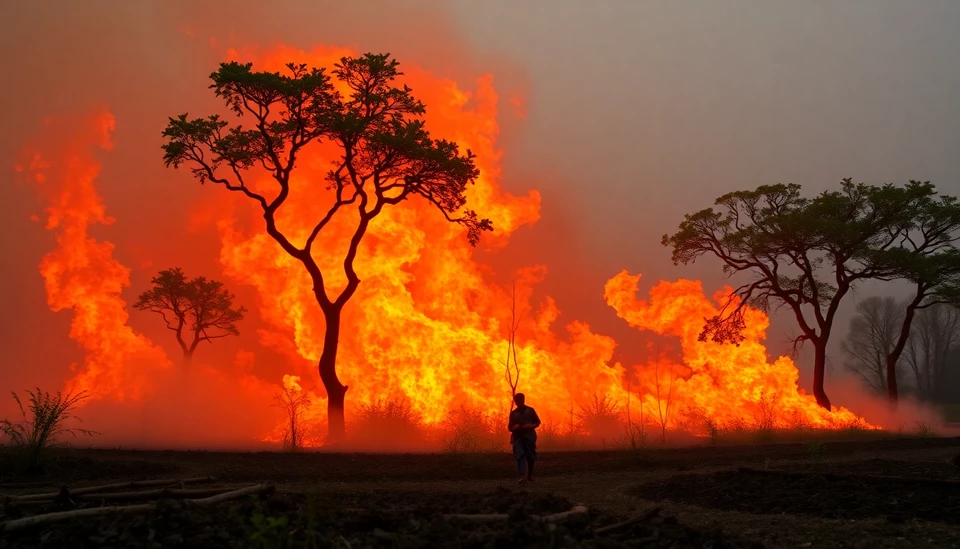
India's efforts to combat the alarming health and environmental impacts of toxic farm fires are facing considerable setbacks despite the government's bold clean fuel initiative. The plan, designed to alleviate the burning of crop residues—primarily in the northern states during the post-harvest season—has encountered a series of bottlenecks that threaten its effectiveness and implementation.
Experts have pointed out that while the initiative started with great promise, it is now struggling to gain traction among farmers in the agricultural regions of Punjab and Haryana, where the practice of burning straw is most prevalent. This method, although harmful, has become a common agricultural practice due to its cost-effectiveness and the quick turnaround it offers for farmers.
The central government launched the clean fuel project to transition farmers from burning crop residue to utilizing alternative clean energy sources, such as biomass in energy plants, which can utilize the leftover straw. The anticipation was that these substitutes would reduce air pollution in major urban centers while also providing farmers with an additional income stream.
However, a significant challenge has been the lack of adequate financial and infrastructural support for these alternative solutions. Many farmers remain skeptical about the benefits of transitioning, as they perceive it to be an inconvenient and costly change. Reports show that the necessary machinery and technology required to process stubble into biomass are not readily accessible or affordable for the majority of smallholder farmers.
In addition, the government's incentive programs to encourage farmers to adopt these cleaner practices have not been enough to motivate change. Farmers have voiced concerns that without guaranteed support and adequate funding to aid this transition, they would continue to resort to burning their crop waste as a matter of survival.
Meanwhile, health impacts resulting from air pollution generated by open fires are stark, with significant increases in respiratory issues reported among residents in afflicted areas. Studies have shown that exposure to the harmful particles released during these fires can lead to chronic lung conditions and affect overall public health severely.
As the winter months approach and the air quality deteriorates further, the need to address this pressing problem becomes increasingly urgent. Environmentalists and health professionals have called on the government to consider more comprehensive measures that not only facilitate access to clean alternatives but also enhance education and create a collaborative framework with local farmers.
Ultimately, unless swift, decisive, and supportive actions are taken by the authorities to address the gaps in funding and resources, India's clean fuel initiative risks stagnating, potentially leaving millions vulnerable to the ongoing crisis of toxic farm fires and poor air quality. The future of cleaner farming practices hangs in the balance, and with it, the health and well-being of countless citizens.
#India #CleanFuel #Farmers #AirPollution #HealthCrisis #EnvironmentalImpact
Author: Peter Collins




